#Ai writer
Text
Some amazing lifetime deals by AppSumo for Blackfriday on SEO tools! Checkout the LTD deals and if you don't like any, get your money back within 60 days, no questions asked!
Which one do you like?
271 notes
·
View notes
Text
Sorry guys, but for those who use AO3 to read my works, I'm gonna have to private them, and the only way to read my shit freely is to have an account yourselves.
Now I'm not doing it because of fandom drama(thank Christ), I'm doing it because SOMEBODY thought it was a good idea to let AI writers run rampant online: https://dreamdripdistance.tumblr.com/post/702526938875609088
Again, I'm really sorry, I want my works to be free to everyone but I don't want a bunch of stupid AIs copying my shit, you want to see a computer make a novel out of my crackfics? Fuck no! I hate to do this to you all but I hope you all understand.
For those who do have fanfiction on there, here's what to do:
go to your dashboard then “works”
click the “edit works” button
select all the works you want to lock
click on the “edit” button
scroll down to “visibility” and select “only show to registered users”
then “update all works”
this will hide your works from anyone without an archive of our own account
26 notes
·
View notes
Text
Obsessed with making this AI write queer Seinfeld episodes. Here are some gems



#the AI usually makes Kramer trans or nonbinary (its not wrong)#ai writer#seinfeld#im with gay George
63 notes
·
View notes
Text
Thoughts on AI
Opening Remarks
I am by no means the first to share my thoughts on AI, nor will I be the last, I am sure. Yet as I’ve watched this discussion grow, I’ve been trying to pin down my own thoughts and feelings on the matter.
Because they aren’t universally positive, but neither are they universally negative. Rather, I am stuck in this dissociative limbo between wonder, anger, and anxiety. How beautiful and terrible, how marvelous and dreadful this synthetic, eldritch mind we’ve birthed into the world! I have struggled in articulating these feelings both to my (mostly non-artist) friends who are very excited about the possibilities of AI art, and to my (mostly artist) friends who feel threatened, disrespected, and undermined by the way AIs were trained and what they are designed to do.
So I hope to put into words both my thoughts and my observations about AI in this post.
(General disclaimer: I am an artist, writer, and composer, but not someone of any notoriety. I do not make a living off of my creations. I have one self-published book, which I wrote and illustrated, and a bandcamp where I finally started sharing my music earlier this year. Everything surrounding AI hits a little differently for someone like me who is just now trying to break into the art economy and feels like the rug’s been pulled out from under them before even getting their foot in the door.)
AI and Ethics
On the one hand, I am awestruck by the possibility of this technology. How strange and wonderful that we can tell a machine what we want to see, and it has the capacity to create it? Or that we can ask for music in a particular mood or style, and it can synthesize the sound in real time? These machines are astounding, and I don’t want to diminish that fact. To get where we are today required decades of work and effort by engineers, coders, and scientists. That effort is not lost on me.
However, AI is fraught with ethical and humanist concerns, many of which I don’t think were taken into account during its inception. Much of AI is trained from datasets made up from privately owned, stored, or copyrighted data, like medical records (1) and watermarked artwork (2). Some AI companies are explicitly marketing their products as a replacement for the people who used to create those things (3, 4, 5, 6). And while an AI music company like Harmonai kept copyrighted music out of their training datasets (7) — a common quote referenced from this article mentions how “diffusion models are prone to memorization and overfitting” — the same cannot be said of most image-based AIs that trawl the internet for data, or music AIs that explicitly generate audio in the styles of known musicians (8, 9). The latter applies to deepfakes of people’s voices, as well.
Existing online is not an invitation for exploitation. Posting an image, sharing a video or song, or publishing your writing should not equal implicit consent for an AI to leverage your creative work for profit.
We live in a world now where AI is capable of synthesizing images, music, video, and writing — creative pursuits that were formerly the sole domain of human capability. I think it is important to ask, for what reason did we create AIs that are capable of taking our place in creative professions? Why turn to AI to generate an image or a song instead of turning to a human artist, or developing the skill yourself?
If we approach AI from the position of creating the best possible world for all people, a world in which human beings can flourish, I do not believe that AI, as it currently stands, brings us closer to that ideal. So long as AI is exploitative, it necessarily worsens the lives of those whom it exploits. Existing online is not an invitation for exploitation. Posting an image, sharing a video or song, or publishing your writing should not equal implicit consent for an AI to leverage your creative work for profit. And disregarding the legitimate concerns artists have about their livelihoods, all for the sake of progress, will only serve to harm us, not help us, as collective humanity.
Common Arguments and Questions
There are certain questions and arguments I’ve seen surface with some regularity surrounding AI. There is an excellent video by Steven Zapata which covers a lot of these same arguments, I recommend giving it a watch (10).
How is an AI learning and synthesizing ideas from what it sees any different from a human doing the same? How is the influence of an artist on an AI any different than that same influence on a human?
The reason behind this common misconception is that the data used to train the AI is viewed as a purely visual influence, much in the same way that humans are influenced by the art they consume. But this neglects two factors:
Humans and AI do not process information the same way. Human brains do not work like machines, and machine learning does not follow the same conventions as human thought.
Humans and AI do not improve skill in the same way. While a human requires practice to grow their understanding of theory, composition, form, etc. with regard to their craft, an AI ‘practices’ by consuming more data points to flesh out specific qualities that it can reference when building an image, such as “roundness” or “apple-ness” or “tree-ness.” It can only copy what is has seen.
When one views an AI’s consumption of data as nothing more than how a human learns from visual references, understanding that the art was stolen becomes harder to accept.
But one must remember, the AI is nothing without the data it was fed (11). Being influenced by an image and building your entire neural network on a foundation of data are entirely different things. The comparison between human and AI is a faulty one, because humans and machines are fundamentally different.
Now everyone can make art, everyone can compose music, everyone can write stories. Why don’t you want that?
As someone who does all three, I would argue back that it was always possible for everyone to make art, compose music, and write stories.
What this statement actually means is that AI levels the playing field when it comes to skill and mastery. Now, everyone can ‘make’ art, music, and stories at a near-professional level. (Well, everyone with access to the internet and a computer-like interface, but that gets into an entirely different issue.)
To create is human. Good or bad, simple or complex, we are all wired to make things — stories, art, music — you name it, we make it. You learn and grow through making things, and the more you create, the greater you develop your aesthetic sense and an understanding of the medium.
Perhaps what bothers me is that AI art ignores the process. The point of art is not only the end result, the ‘product’ that you end up with after you’ve finished. The process of generating the art, of discovering it, of honing your skill, this is all just as precious as the art itself. It is not to be tossed away, disregarded, considered passé.
There is so much more to art than what you ‘get’ at the end.
AI artists are real artists because you need an aesthetic sense to know which images are good and which ones are bad.
I do not disagree that aesthetic sense is incredibly useful for curating the images that the AI generates, but I do disagree that aesthetic sense alone makes an artist. Nor do I believe that the skills required to generate images from an algorithm are comparable to the skills of an artist.
...we must inevitably come to the question of whether we place AI-based communication in the same skill category as producing a work of art with your own hands from scratch.
Merriam Webster defines an artist as “a person who creates art (such as painting, sculpture, music, or writing) using conscious skill and creative imagination” (12).
The point of contention I have here is over what constitutes “conscious skill” and “creative imagination.”
If we take conscious to mean “done or acting with critical awareness” (13) and skill to mean “a learned power of doing something competently: a developed aptitude or ability” (14), then we must inevitably come to the question of whether we place AI-based communication in the same skill category as producing a work of art with your own hands from scratch.
If we take creative to mean “marked by the ability or power to create” (15) and imagination to mean “the act or power of forming a mental image of something not present to the senses or never before wholly perceived in reality” (16), then we must ask if there is the capacity for imagination beyond the prompt itself in the AI image generating process. To call the AI capable of imagination makes the same mistake as in the first argument — an AI is not human. And likewise, the AI cannot generate anything it has not already seen in its training dataset.
To use an AI robs the user of the chance to imagine for themselves how they might represent, say, a cityscape at night, or a chicken wedding. While it is fun to see what the AI generates based on the data it can reference, I believe it is a misstep to then label the user an artist for telling the AI to produce those images.
I am much more comfortable with the term “AI collaborator” than “AI artist,” because, in truth, that more accurately describes what is being done when a user inputs a prompt into an AI and then attempts to guide the AI based on their personal aesthetic sense. This separation of terminology also helps to clarify when an image required years of study and days of work to create vs. when an image required a few words and some careful curation.
As an added note, I think that images generated this way could be useful for artists who want help with ideation. But it is an important step — in my mind at least — for the artist to take what the AI created as inspiration, not as the final product.
AIs aren’t going to replace real artists. It’s just a fun tool that people are using to make silly memes.
AI is already poised to replace artists in many fields, or will likely do so in the near future (17, 18).
...for many artists, it’s the mundane work that pays the bills.
There are AI composers trained on vast libraries of audio that can generate film, video game, or commercial soundtracks (19, 20). There are AI writers that can produce drafts of “SEO-friendly” articles for the web based on article titles (21). There are AI storytellers that are only serviceable as writing assistants at this stage, but at the rate that natural language processing is developing, it isn’t hard to see them creating stories all on their own in the near future (22). The Atlantic has already used Midjourney to provide the illustration for one of their newsletters (23) and an AI art piece has already won first place at an art competition (24).
Now anyone can make music equivalent to that of a professional composer with the click of a button (25). Why pay for the libraries of human-composed soundtracks, or commission a musician to score your indie video game, when an AI could just do it for you for free, and instantaneously (26)?
Now anyone can generate art with a few select key words entered into an image generator (27, 28, 29). You don’t need to pay an artist you like, you can just tell the AI to mimic their work. You don’t even need to ask a more affordable artist to copy their style because the AI can do it for free, and the result is immediate.
When natural language processing catches up with humans, AI will be able to create novels without a human writer, though I don’t see editors ever going away. Publishing houses can keep on their editors, but you don’t need a writer in that equation anymore.
The most optimistic view says that AI will free up artists to do the more fulfilling types of art and avoid the more mundane forms of it. The commercial jingles, the company logos, the ghostwriting for convenience store fiction—those can be done by AI, leaving the art galleries and bestseller lists and symphonies to the human artists. This view neglects that, for many artists, it’s the mundane work that pays the bills. Not every artist can attain an elite position, and the prevalence of AI taking up lower level work makes it even harder to rise to the top for those who do have the requisite skill. (This also neglects that many artists do enjoy that kind of utilitarian work, but that is another issue entirely.)
AI art is the next evolution in art. This is no different than how photography replaced landscape painting, or digital art replaced traditional art, or 3D animation replaced 2D animation, etc.
While this is true to a degree, in that each advancement in technology has shifted the artistic landscape, often relegating old forms of art to a smaller subsection of the art world, I do not think the comparison holds up under scrutiny.
In each of the above instances, the creative force was still with the artist, not with the tool. With AI, you can tell the AI what you want to see, but ultimately you have very little control over what image is produced.
Photographers can stage their shots, alter the lighting, introduce set pieces or props, and so on. They can choose the locations where they shoot, and make use of several different tools both during and after the shoot to alter the images.
3D animators build the models they use and often paint over the digital landscape they’ve built. Lighting, color, sound design, object interaction physics, and so on, all influence the final product. You are still building the images, frame by frame, and you have much more control of the final product.
I think there is an argument to be made for using image manipulation with AI-generated images. Transformative works are an important part of the art ecosystem. But, in the same way that a photograph of a painting is not considered a replacement or an evolution of the art form, I do not believe that an AI-generated image built on the works of un-credited, unpaid artists can be called an evolution of art. It is a tool, not an art form unto itself.
Blue Sky Thinking
I am hopeful that there can be a place for AI in the art world. Not as a replacement for the artists (30), but as a tool which enables people to expand their imaginations and develop their skill.
However, I do not think there is any way forward without first making sure that:
Artists have the power to choose whether an AI gets trained on their images.
Those who do choose to include their art in the dataset are fairly compensated for their contributions.
We have legislation in place which protects artists from frauds who would pass off AI forgeries as belonging to those artists.
Companies must use a specific ratio of human-made art to AI art, one which favors the human artists, to protect the livelihoods of those artists and keeps open the paths to career advancement.
The above list is likely not exhaustive, and I imagine even more needs will arise the longer that AIs exist.
But there are many applications of AI that I could imagine benefiting artists. In this section, I am imagining how a fully developed AI that is not plagued by the problems of its infancy could be used.
Imagine using AI to determine where the anatomy is off on your figure drawing. An AI that has been trained exclusively on how multiple types of bodies look in 3D space could potentially compare your drawing against thousands of examples and highlight where the elbow might be in the wrong position, or the foreshortening on the foot isn’t quite right. The AI could help train the artist’s eye to better see where they need to grow.
Or in an animation studio, where uniformity of style is important for a consistent-looking film or series, an AI that has been trained on character models and short animation reels, along with all previous episodes of the show, could help identify where artists are running into specific problems with replicating the characters. This could help animators grow in their understanding of how to identify where they tend to go off-model.
Or for an illustrator stuck in a rut on how to design a character. Putting in a few descriptors from the book they are illustrating could help with the ideation process before they set down the final character designs. Many illustrators already use reference material to help spark their imaginations. With an AI, finding the examples you need becomes that much quicker.
For a digital artist who is very prolific and in high demand, having an AI collaborator that helps them with the more tedious parts of the drawing, parts which require very little skill, such as laying down flat colors or copying a repeating pattern across a canvas, could be done by the AI to speed up their production time.
For a video game designer, having an AI that can turn hand-drawn assets into usable objects for a game could be very useful. Imagine an AI that can bridge the gap between human-made images and the integrated video game world, knowing already how to apply real-world physics to the objects because it understands “bowl-ness” and “weight.”
And for hobbyists who just like to play around with an AI image generator, it could be another source of income for artists who choose to design art for those image generators. Just like artists build the character options for a character building engine in a video game. AI image generators as they function now, I think, are best if considered as video games.
And if I think about music, it does seem as though AI models for music may already be trending in a hopeful direction. Imagine using AI to generate sound samples for electronic or experimental music. Or letting AI help you come up with that missing lyric that you just can’t think of. Maybe you want to create a your own set of unique midi instruments. You could use an AI to create the sound you’re looking for and then turn it into an instrument by adjusting the tone. You could use this new instrument in your DAW, or integrate it with notation software. Maybe even turn that sound into a synth that you can pull up on a keyboard and play at a concert.
There are many possibilities, and not all roads lead to exploitation.
Closing Remarks
I want to believe that this technology does not mean that work which would otherwise have been given to writers, musicians, and artists will instead be given to AI. I want to believe that rather, this technology will enable people who otherwise would never have been able to afford writers, artists, and musicians to have access to good writing, beautiful music, and astounding art. I want to believe that when those people come to a place where they can afford to hire creative people, they would choose that over AI. That AI would be a stepping stone. Much like with composers using virtual instruments for their music, or novelists using royalty-free images for their self-published novels, the specificity of human performance and creation is preferred, but out of reach.
Ultimately, I think the feeling I have is one of futility rather than hope. What was it all for? Why spend years of my life honing my skills as a pianist, a composer, an illustrator, and a writer? What was the point of sinking thousands of dollars into a degree in music composition? Or the years of lessons on music theory? The hours spent researching storytelling models? The closet full of sketchbooks and classes in figure drawing, painting, art history, and design? What purpose does all that training serve now?
But then, who am I to complain? I can’t afford to hire musicians to play my music, so I use virtual instruments instead or record in my bedroom on the few instruments I know how to play. I can’t afford to hire cover artists for my albums, so I do my best to design them myself. Is it not the same for any small content creator? How is leveraging the royalty free stock images available online any different from clicking a button to generate an image from an AI?
I don’t know the answers to these questions, and I think it will take time for us all to work them out, together.
AI has potential for good, but it also has a lot of potential for harm. And I don’t see us avoiding the harm (to not even speak of the harm that has already been done) without serious intervention. The future is up to us.
I am still learning about this topic, and will probably continue to learn as the situation changes. I’ve linked throughout this post the resources that I referenced during my research. I hope that this post will also help others process their thoughts and feelings on AI, and maybe even find some of the resources useful, too.
Sources:
1 https://arstechnica.com/information-technology/2022/09/artist-finds-private-medical-record-photos-in-popular-ai-training-data-set/
2 https://kotaku.com/ai-art-dall-e-midjourney-stable-diffusion-copyright-1849388060
3 https://stability.ai/blog/stable-diffusion-announcement
4 https://soundraw.io/
5 https://boomy.com/
6 https://www.ampermusic.com/
7 https://wandb.ai/wandb_gen/audio/reports/Harmonai-s-Dance-Diffusion-Open-Source-AI-Audio-Generation-Tool-For-Music-Producers--VmlldzoyNjkwOTM1
8 https://sensoriumxr.com/articles/what-is-ai-music
9 https://www.inverse.com/input/tech/open-ais-jukebox-generates-music-that-sounds-like-dead-artists
10 https://youtu.be/tjSxFAGP9Ss
11 https://www.aimeecozza.com/ai-art-what-is-it/
12 https://www.merriam-webster.com/dictionary/artist?src=search-dict-box
13 https://www.merriam-webster.com/dictionary/conscious
14 https://www.merriam-webster.com/dictionary/skill
15 https://www.merriam-webster.com/dictionary/creative
16 https://www.merriam-webster.com/dictionary/imagination
17 https://www.cartoonbrew.com/comics/dall-e-midjourney-ai-illustrated-comics-220166.html
18 https://www.dacs.org.uk/latest-news/dacs-warns-that-new-text-and-data-mining-exception?category=For+Artists&title=N
19 https://www.unite.ai/best-ai-music-generators/
20 https://filmora.wondershare.com/audio-editing/best-ai-music-composer.html
21 https://ai-writer.com/
22 https://www.codingem.com/best-ai-story-generators/
23 https://newsletters.theatlantic.com/galaxy-brain/62f28a6bbcbd490021af2db4/where-does-alex-jones-go-from-here/
24 https://www.vice.com/en/article/bvmvqm/an-ai-generated-artwork-won-first-place-at-a-state-fair-fine-arts-competition-and-artists-are-pissed
25 https://builtin.com/artificial-intelligence/ai-music-examples
26 https://medium.com/@1jonathankao/how-anyone-can-create-music-with-ai-725821f2f25c
27 https://creator.nightcafe.studio/
28 https://www.makeuseof.com/how-to-use-midjourney-create-ai-art/
29 https://openai.com/dall-e-2/
30 https://ebenschumacherart.com/will-ai-replace-artists/
Other Resources:
Society of Illustrators: https://societyillustrators.org/
Concept Art Association: https://www.conceptartassociation.com/
Equity (UK-based Creative Union): https://www.equity.org.uk/
Proko on AI Ethics, Artists, and What You Can Do About It: https://youtu.be/Nn_w3MnCyDY
The Met on AI Art: https://mymodernmet.com/ai-art-2022/
CNN on AI Art: https://www.cnn.com/2022/10/21/tech/artists-ai-images/index.html
ArtStation Protest:
1 https://kotaku.com/artstation-ai-art-generated-images-epic-games-protest-1849891085
2 https://www.vice.com/en/article/ake9me/artists-are-revolt-against-ai-art-on-artstation
Check for your art in databases used to train AI: https://haveibeentrained.com/
#art#ai artwork#artificial intelligence#ai music#ai writer#mae muses#ai#ai compositions#ai novels#ai ethics#longform essay#I never do these#so I apologize if it isn't very good#I hope my research is sound#I could keep editing this forever but I think it's about time I posted it already
15 notes
·
View notes
Photo
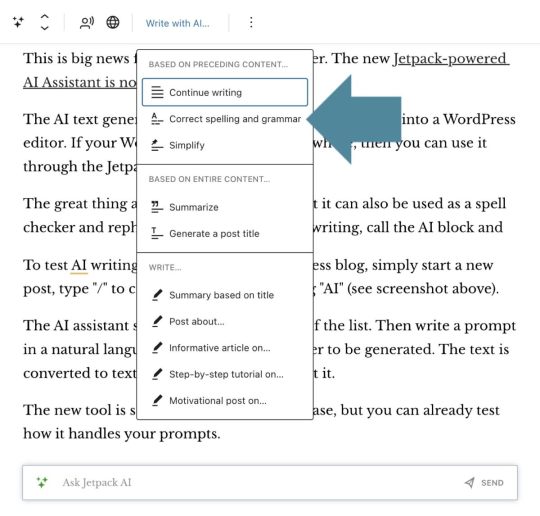
The new AI Assistant is now available for WordPress! The AI writing tool is seamlessly integrated as a block into a WordPress editor. It can also be used as a spell checker, rephraser, and title generator.
(via Now you can use AI writing directly in WordPress)
#wordpress#ai#ai writer#ai text#ai assistant#spell checker#ai rephraser#text editor#wordpress ai#writer#author#writing#writer updated
5 notes
·
View notes
Text
Just found an AI writer and told it to write a story about Aziraphale and Crowley.
I am in tears.
____________________
Aziraphale and Crowley had been friends for centuries, despite their opposing roles as an angel and demon. They met shortly after the creation of the world and had been inseparable ever since.
One day, Aziraphale and Crowley were walking through the streets of London, discussing the latest events on earth. They were particularly worried about the impending apocalypse, which was fast approaching.
As they walked, they stumbled upon a small bookshop. Aziraphale, being an avid reader, couldn't resist the temptation to go inside and browse. Crowley, on the other hand, was less interested in books and decided to wait outside.
As Aziraphale browsed the shelves, he came across a book that caught his eye. It was an old, leather-bound volume with strange symbols etched into the cover. Without hesitation, he picked it up and began to flip through the pages.
As he read, Aziraphale's eyes grew wide with shock and horror. The book contained a series of dark and ominous prophecies, all of which seemed to point towards the end of the world.
Panicked, Aziraphale rushed out of the bookshop and back to Crowley. "We have to do something!" he exclaimed. "The apocalypse is coming, and we have to stop it!"
Crowley, always the calm and collected one, suggested that they go back to their respective homes and consult with their superiors.
And so, Aziraphale flew back to heaven while Crowley descended into the depths of hell. They spent the next few days frantically trying to find a way to prevent the end of the world, but alas, it was too late.
As the final days ticked by, Aziraphale and Crowley stood side by side, watching as the world came to an end. Despite their differences, they knew that they had always been friends and that nothing could ever change that.
As the flames of the apocalypse engulfed the earth, Aziraphale and Crowley smiled at each other and whispered a quiet goodbye. For they knew that, no matter what happened, they would always be together.
#good omens#good omens short stort#short story#AI writer#writing#short stories#good omens aziraphale and crowley#text post#text#i am in tears#ineffable fandom#ineffable partners#good ineffable omens#aziraphale#crowley
12 notes
·
View notes
Text
Textero.ai Review 2023: Legit Essay Generator
In today's digital world, AI writing tools have changed how we approach academic writing. Textero.ai offers writing unique essays, idea generation, and article summarizing. But is it as good as it sounds? What about pricing? In this review, we'll find out if Textero.ai is worth using or not.
Advantages of Textero.ai
I’ve generated an essay on the topic “The Power and Responsibility of Media in Today's World”. According to the results, here is a list of Textero.ai’s pluses:
Original and mistake-free texts
Textero.ai effectively ensures your paper's originality while maintaining proper grammar and punctuation.
Rapid content generation
Textero.ai is all about speed. It can create a 4-page document in just about 2 minutes. You can preview the produced text on the website or download a document to your computer.
Easy paper formatting
Formatting essays becomes easy with Textero.ai, which supports both MLA and APA citation styles.
Great essay helper
Textero.ai quickly finds sources for your paper and generates ideas. The produced text can become a great starting point for your essay or other academic materials.
Convenient website
Pleasant colors, an easy-to-use platform, and a window with customer support service.
Disadvantages of Textero.ai:
1) You can use Textero.ai for free, but this version has limited features: only 3000 words per month and basic essay quality (not pro quality).
2) Textero.ai doesn't offer the option to select a specific word count. You're limited to indicating the number of pages for your text.
FAQs
What are the main use cases of Textero.ai?
Textero.ai helps you write essays, start writing quickly, and do research more easily. It's a useful tool for academic work, especially for formatting papers and finding reliable sources.
Is Textero.ai a safe tool?
Yes, Textero.ai is a legitimate platform that uses Google authentication for secure access.
Can Textero.ai create unique essays?
The tool generates plagiarism-free essays without mistakes. But I also recommend you revise it as this is your personal paper.
How does Textero.ai work?
The tool employs AI technology to create distinctive content for academic purposes.
Can Textero.ai overcome writer's block?
This is the main aim of Textero.ai, and the tool works perfectly with it.
2 notes
·
View notes
Text
Excellent read! Echos much of what I've been thinking about AI generators in general. Very interesting what he says about it being a way to play with language. Happy to see intelligent takes on this topic!
#ai art#ai criticism#chatgpt#ai generator#ai writer#philosophy#technology#transhumanism#chatbot#digital art#art#artificial intelligence#intelligent discussion#the atlantic
11 notes
·
View notes
Video
youtube
Master Google Ads for Maximum Conversions with AI
#youtube#AI#ai websites#Ai tools#Google ads#google advertising#google adwords#digital marketing#Ai writer#ai technology#social media marketing
2 notes
·
View notes
Text
Had an AI write a quick Outlast fanfic woth the keywords "Rick, Trager, and Jeremy"
I love that the AI immediately shipped them
Here you are:
It was an early morning at Mount Massive asylum and Trager was being more sensitive than usual about things. When Jeremy showed up in the work room, Trager instantly checked Jeremy for blisters but Jeremy was fully healed already.
“Why did you hide it? It looks like it could change someone’s opinions…A severe influence, Jeremy!”
Trager refused to admit that he was attracted to Jeremy but when he found Jeremy sitting in one of the chairs he had picked out at Ikea, Trager realized the truth that he was attracted to Jeremy. Just when Trager realized he was attracted to Jeremy, Jeremy looked up and saw Trager’s arousal. Trager tried to appear tough in front of Jeremy.
Rick offered Jeremy some food and Jeremy eventually joined the group, making their temporary band a quartet. Rick had invited Jeremy into Rick’s room without consulting Rick’s sister, Jeremia.
11 notes
·
View notes
Text
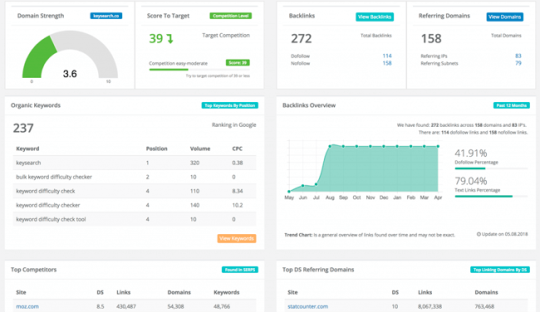
Our keyword tool gives you multiple ways to find related, niche relevant keywords in any niche. Just put in a seed keyword and Keysearch will return hundreds of related keywords with search volume, CPC & PPC data. Refine your search with our Related https://bit.ly/3FDxob1
#seo#ai writer#black friday#lifetime#d&d#motherhood#game night#Microdosing#hosting#A Song of Ice and Fire#An X of Y and Z#Book Titles#frivolous posts#zA Thinks#Humans are Strange#Marketing#year in review#web celebs#Social Media
7 notes
·
View notes
Text
AI is crazy. Like why is it writing fanfictions...
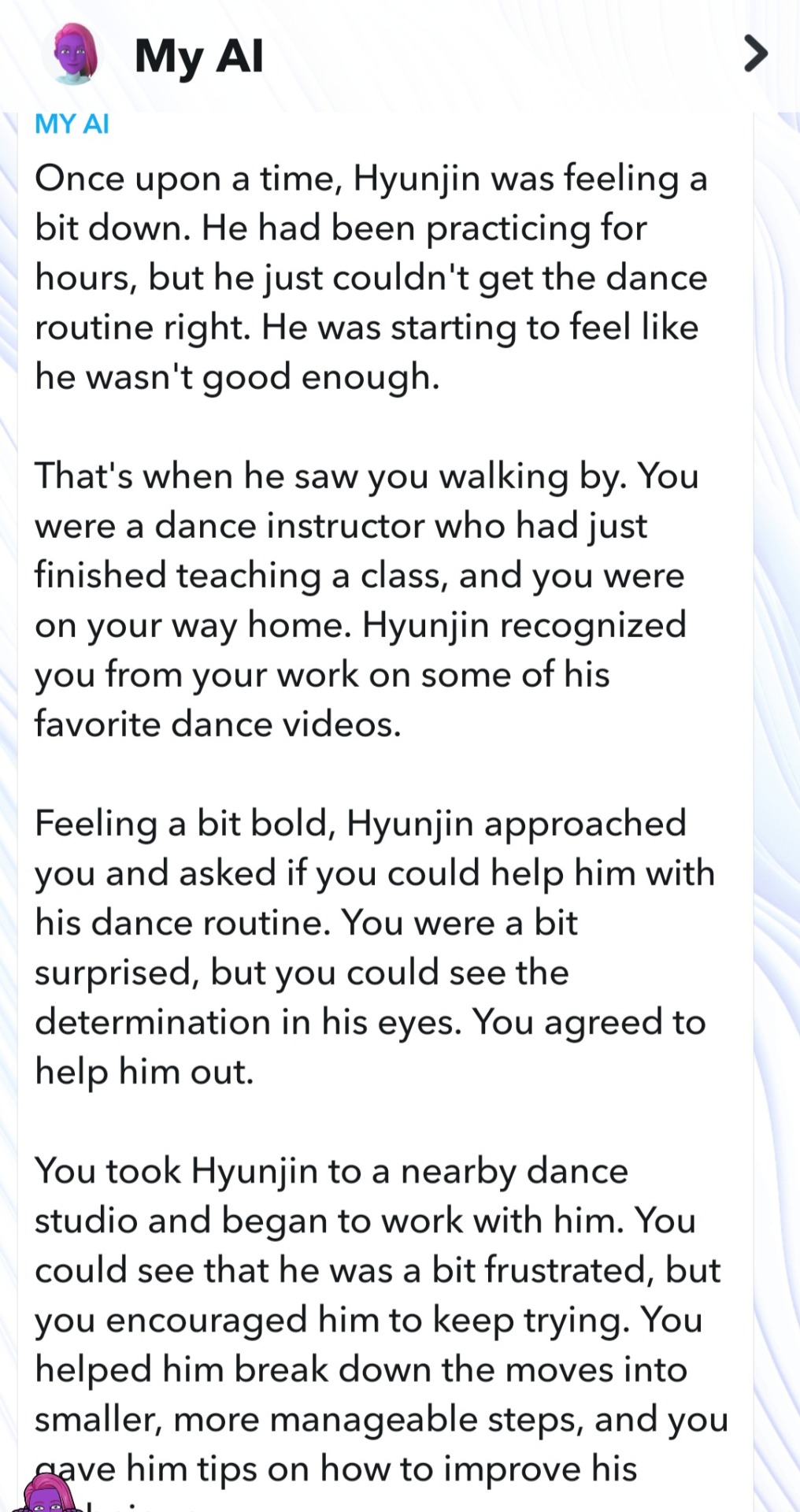
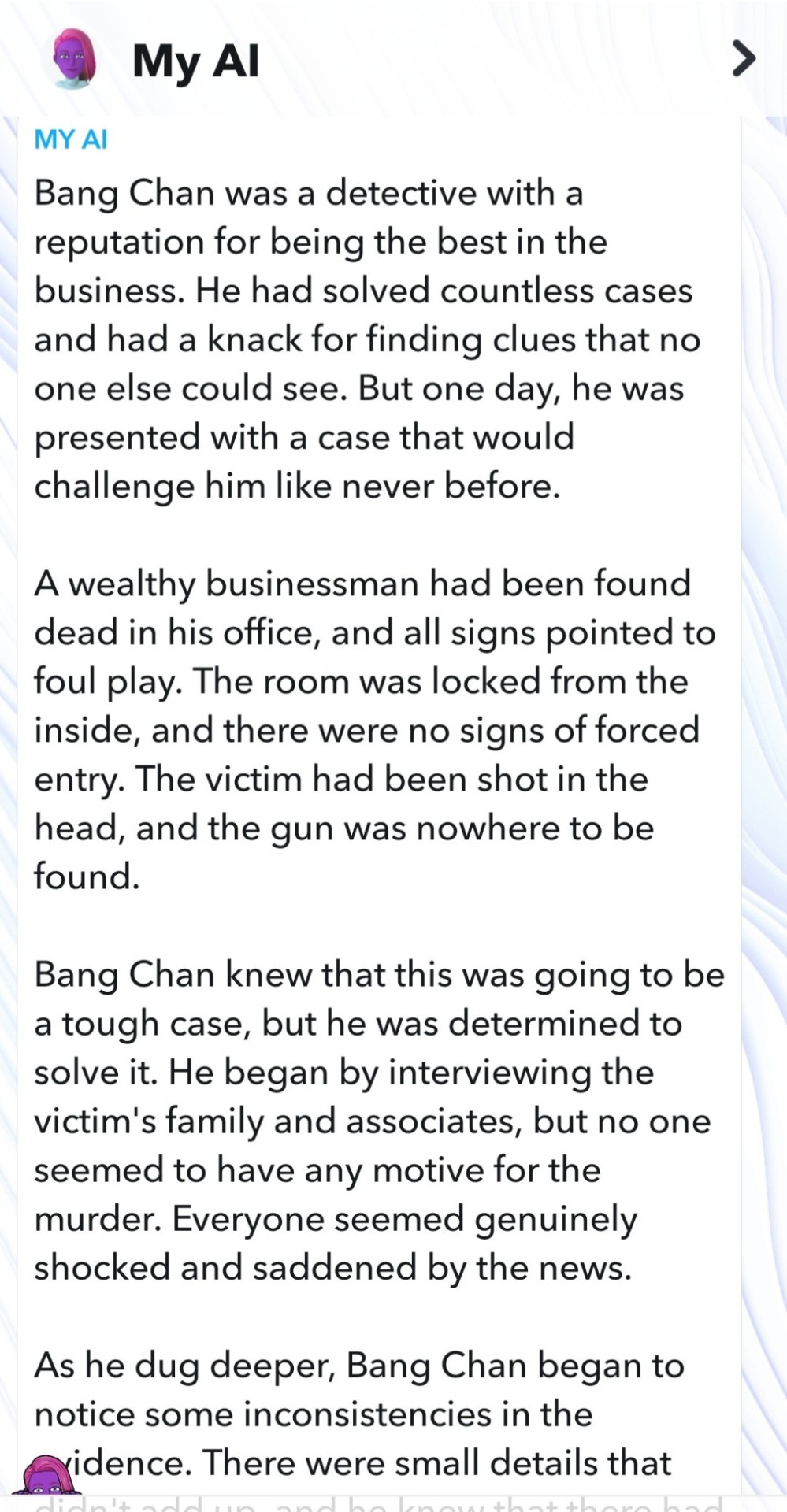
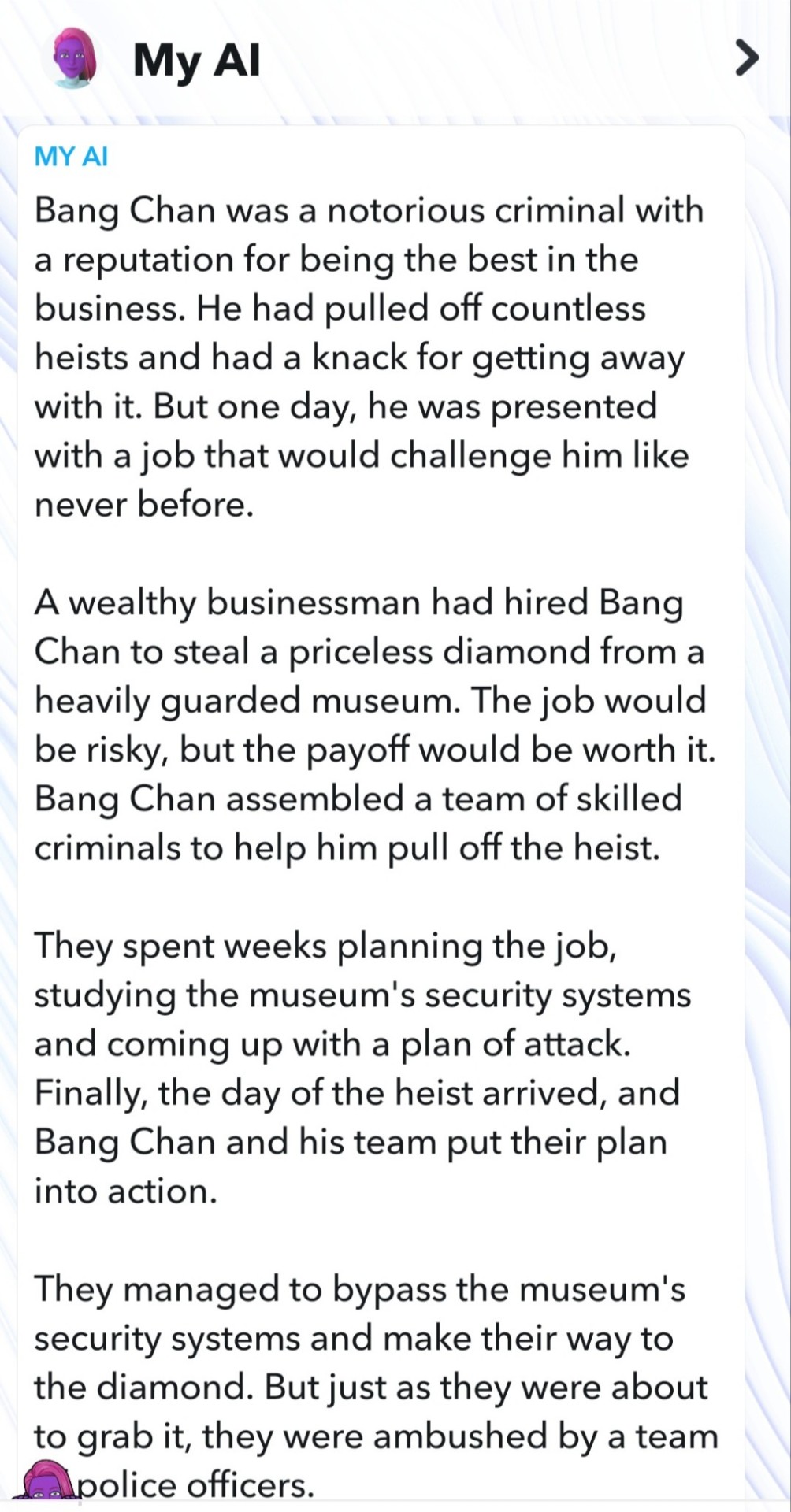
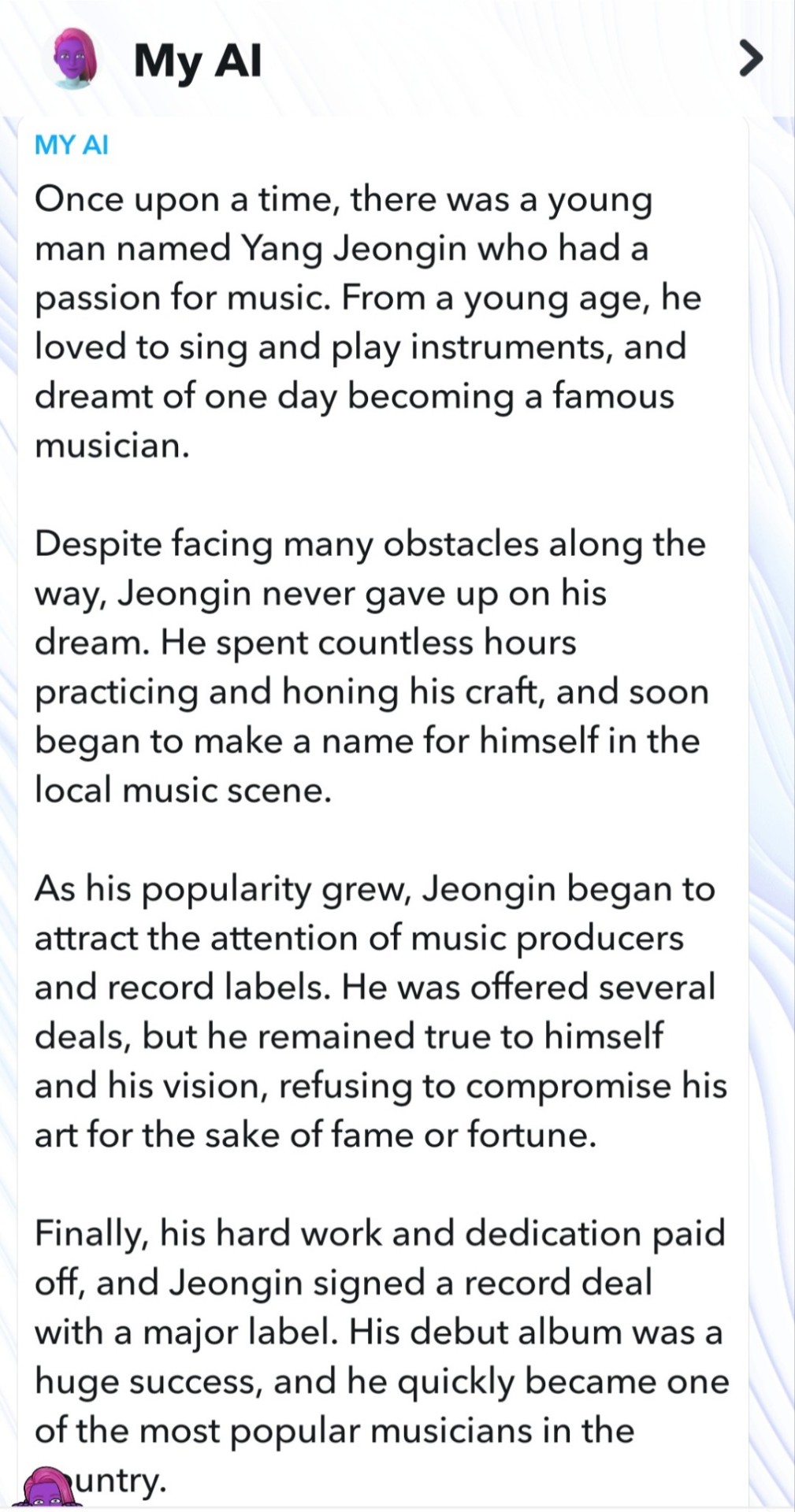
#stray kids#skz fanfic#stray kids fanfic#stray kids imagines#stray kids scenarios#bang chan#hwang hyunjin#hyunjin#stray kids fanfiction#ai wrote this#ai writing#i hate it here#tumblr writers#ai writer#fanfic#kpop fanfic#fanfiction#writers on tumblr#pureblisstalks
4 notes
·
View notes
Note
ai art debacle giving me a migraine, fuck man. im seeing 2 possible ends; a lot of artists get automated out of a job OR they pass some draconian copyright act and transformative work gets shafted by association. art really is dead, huh
worst case scenario is both lol 😭😔. i'll be the first to admit i'm not 100% knowledgeable about copyright and IP and the details of it, but if artists/creatives (mostly speaking to people actually in the field or who are pursuing this as a career) seriously think the way out of this is through expanding copyright, changing how fair use laws work, messing with IP laws, they will just fuck themselves over 100%. like you have to be veeeeeery careful here with the way some of this conversation is going.
i think creatives should unionize. at the end of the day, it's not the AI itself that is the issue. there are closed AIs that move ethically. it's this open-sourced AI that is moving fast that is what everyone's talking about. even then, AI is just math, just an algorithm. it's not sentient. it's the fact that artists aren't respected and larger than that, workers themselves aren't respected in the USA. they should unionize and push their bosses & companies to pledge not to use AI. thats at least one way out of this that could be extremely effective.
i think for a lot of this AI issue, the cat is already out of the bag. i think we're a few years, maybe not even that, away from seeing entire industries reshaped. idk what it will look like exactly, but there is no doubt something has changed in the world overnight with both writing and art AIs
5 notes
·
View notes
Text
Join the Telegram Channel of AI-Powered digital Tools useful for your Business, hobby or any other sector.
#ai#artificial intelligence#ai chatbot#ai writer#ai community#ai generated#ai channel#inteligencia artificial#intelligenza artificiale#ai tools#ai art#ai marketing#ai prompt#chat gtp#chatbot#ai writing#ai business#ai company
5 notes
·
View notes
Text

AI Paraphrasing tool for paper writing, essay writing and content creation - https://netus.ai/
#ai paraphraser#ai paraphraser netusai#free tool for student#ai checker#plagiarism checker#plagiarisim detector#ai writer#chatgpt watermark#ai bypasser#bypass turnitin#student hack#school cheater#college hacks#university hacks#work smart#funny meme#ai memes
3 notes
·
View notes
Text
Unrelated to fandom talk. If I see anyone using Ai artwork on here? Immediate block.
Considering all the other posts on tumblr bout Ai art, I shouldn’t have to explain it to ya. I’d rather not promote something that damages current artists and also could be preventing others in exploring art, digital or otherwise.
And Ai fanfiction writers? No. Don’t even get me started. Ya fool.
#ai art generator#we hate it#i will block on sight#ai art slander#ai art sucks in an ethical way#ai writer#ai slander in general
5 notes
·
View notes